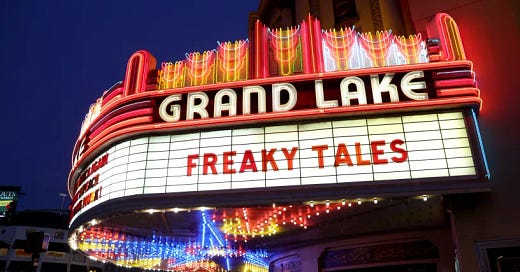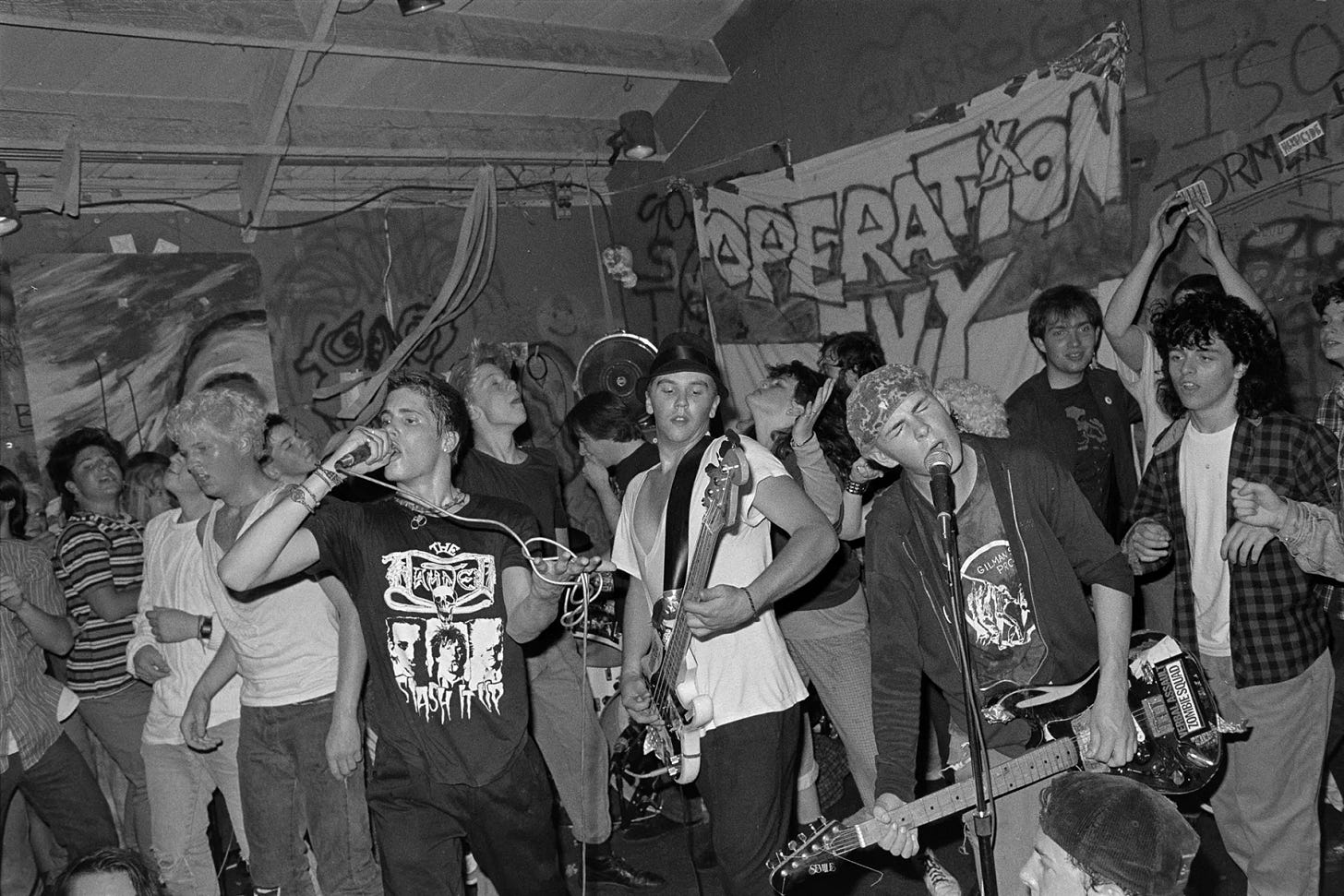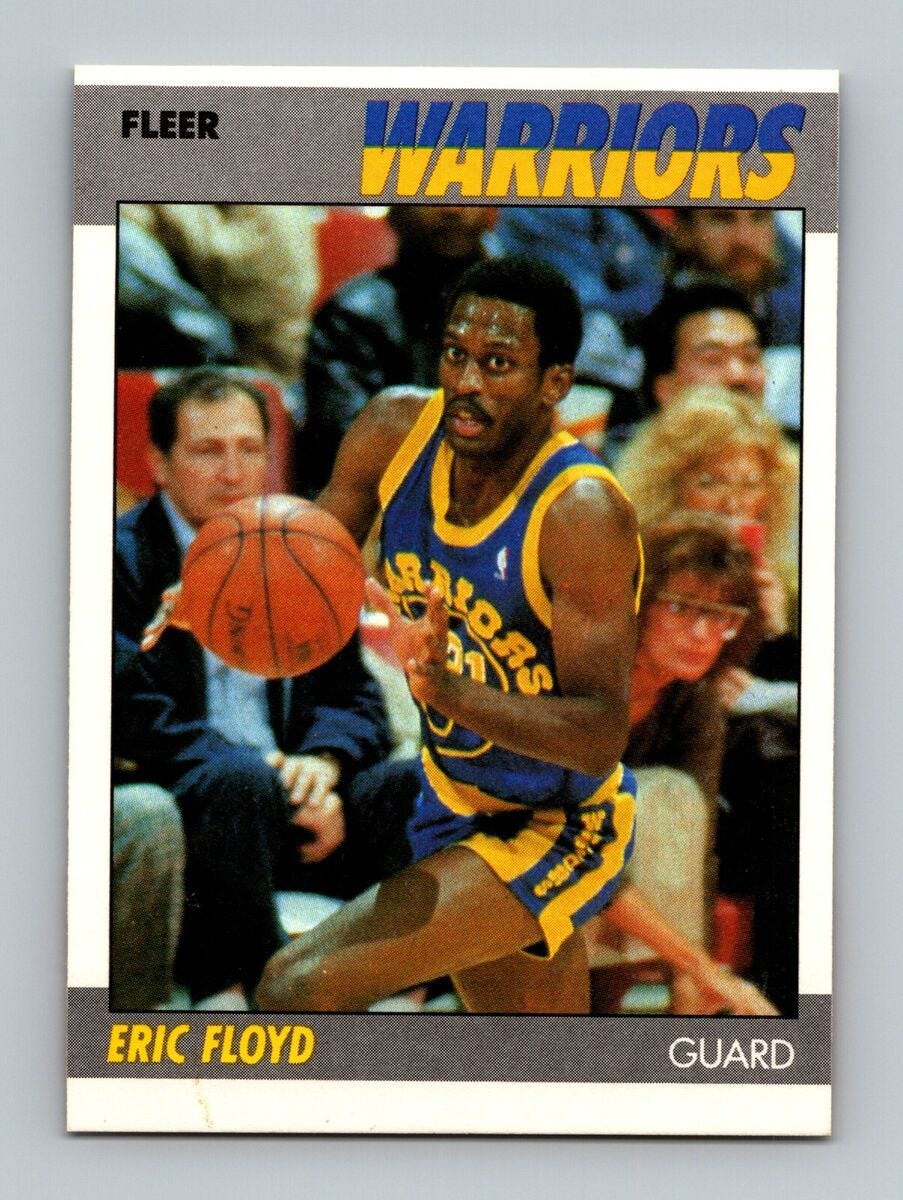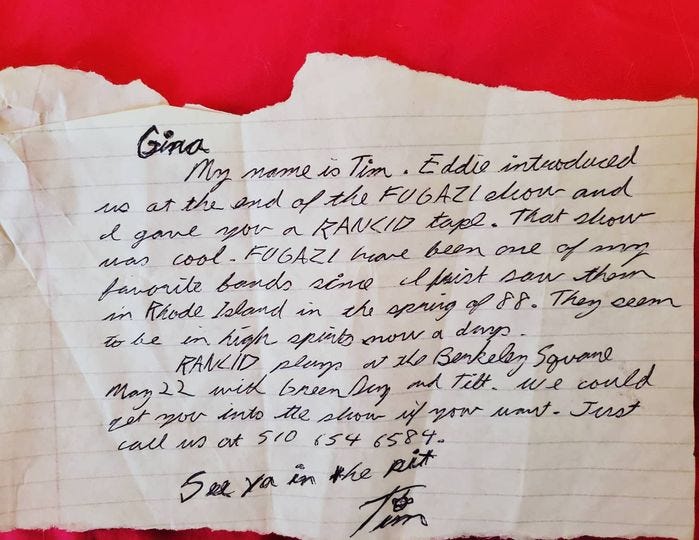People are always saying how they won't go to the movies anymore because a) they cost too much b) people in the theaters act obnoxious, and c) you can see them for free later at home when they stream. I don't know though. People have always been obnoxious at the movies and seeing movies at home kind of sucks. I still love going to the movie theater, but given the economics of cinema which relies mostly on horrible franchises, horror and kids’ stuff, it's easier to know what you DON'T want to see now than to find something worthwhile on the big screen. The result is that sometimes I go in with very little information about the film in question, like last night, when I went to see "Freaky Tales." All I knew was it starred Pedro Pascal, and a vague (mistaken) idea it was about a drug deal gone wrong, so you can imagine my surprise when in the first few minutes, my literal, actual, life flashed before my eyes.
"Freaky Tales" is set in Berkeley, El Cerrito and Oakland in 1987, and while it wanders around in the hills and the flats, from MacArthur Boulevard to the Grand Lake Theater, the first story really begins in Berkeley at 924 Gilman Street, a real place that I've been to millions of times, mostly in 1987, and the recreation in the film is utterly uncanny. Everything is correct, from the graffiti to the faces of the characters to the bands on stage, and if some people don't look exactly like their real-life counterparts, they look close enough to make me gasp. About two minutes into the film, the band Operation Ivy plays "Knowledge" (live) and the crowd goes crazy and it was bop-me-on-the-head realistic, it was like a home movie or something. Tears started up in my eyes, I kid you not.
OMG, you guys, someone made a movie featuring Op Ivy! What next? A film about Fugazi??
I always feel a little crummy when I think about 924 Gilman Street though. In the end, they hated me so much there. Why did they hate me? I can't even answer that, they just did. Ask them, if you want to know, although even they probably don't even know by now. Maybe I was imagining it, although the t shirts that instructed people to kill me being sold there and that time a certain beloved “rebel girl” ragefully burned one of my stories on stage argues otherwise. It used to bother me a lot, actually, thinking back about Gilman Street. Truly, I have angst. But somehow seeing the place in "Freaky Tales", stopped it. It didn’t feel crappy so much as it just felt like a long time ago, and kind of imaginary.
"Freaky Tales" isn't just about 924 Gilman Street, though, it is also about the nascent Oakland rap scene at the time, in sequences centering around Too Short, the 1987 Warriors, and the corrupt Oakland police department. A lot of it is fictionalized - especially the cop part, which features an imaginary character, as opposed to the Warriors part, which features a real player, Eric "Sleepy" Floyd, played here as a young man by Jay Ells. (Fun fact, provided by my brother: their opponents, the "Showtime" Lakers, included Klay Thompson's father.) Floyd did in fact make 51 points in a playoff game quarter. But no one died while he was doing it, as far as I know. That part is fictional.
The film makers call it a love letter to the city, and it is, in the sense that it celebrates some great things that came out of it, while at the same time envisioning a sort of cathartic revenge-on-past-wrong-doings there, similar to the film "Once Upon a Time In Hollywood." In the Too Short sequence, for example, Too Short raps his unbelievably misogynistic song "Freaky Tales" at Sweet Jimmies, and the heroines of the story, a female rap act called Dangerzone, get on stage and shut him down with a far fresher, dirtier, and meaner rap. It's as if Megan Thee Stallion or Cardi B had materialized from the future.
In fact, the incident is, like the Gilman Street sequence, more or less true, except it happened in the studio, and not live on stage - and it didn't quite change the paradigm of females being shit on in that scene for the next three decades. But movies are fantasies, and this is surely the fantasy I would like to remember 1987 as. In the film, Gilman Street is the site of a big Nazi bashing (based on a real incident, although exaggerated in a filmic manner). I wondered if the filmmaker, Ryan Fleck, who is from Berkeley, went to Gilman Street, and if he did, if HE hated me like everybody else. He and his partner, Anna Boden, also made the film "Captain Marvel," which makes sense given how much CGI splatter and magical stuff there is in the film, and there is a low-key super-hero theme running on top of its story-telling, positing that the people in the past were somehow stronger and better and braver and more idealistic than people are now.
And hey, maybe they - maybe we -- were.
After I saw “Freaky Tales” I watched a few videos about it and one of the filmmakers’ stated goals was to recreate film conventions of that time - some of which I am not familiar with, since at that time I never went to the movies because I was too busy being at punk rock shows. They also wanted to recreate the vibe of 1987. Therefore, the characters are always on payphones, at video-tape rental stores, chopping up cocaine, and popping mixtapes into their car stereos, all of which feels hella old-timey now. And no wonder: in 1987, when me and Isabelle were haunting these same spots, forty years prior was pre-World War II, in the middle of the great Depression. TVs hadn't even been invented yet. A movie made about that time shows ladies in long skirts and all the men wearing hats. Many movies set in the 1930s also depict men and women as being better and braver than people today, as they square up against actual Nazis.
Like those films, "Freaky Tales" also depicts a moral universe in which it is accepted by everyone that all Nazis are bad - which I am afraid is a feeling which has not stood the test of time. Indeed, because of everything going down today, the film, which is essentially a comedy, made me feel sadder than it should have. Those days now seem not only far away in time, but demonstrably superior to the present. And I say that eyes wide open: people at Gilman, who shall NOT remain nameless, could be mean, specifically to yours truly, and people in the Oakland rap scene were not exactly saints, and the Oakland cops, then and now, are highly flawed, to say the least, and the Golden State Warriors were - well, at least the Warriors are still A-OK.
However, sadness aside, I say two thumbs up to "Freaky Tales." At the end of the film, there is a brief scene of a car crossing the Bay Bridge towards SF and although I missed it, Caitlin immediately said: "Look! It's the Salesforce Tower." Even she knew that monstrosity was not looming over the horizon in 1987, but despite the lack of continuity, I like to think it was included deliberately, as a reminder of the horrible impending future, a massive, egotistical edifice that keeps us under its gaze indefinitely, a constant reminder of the forces we are now enthrall to.







